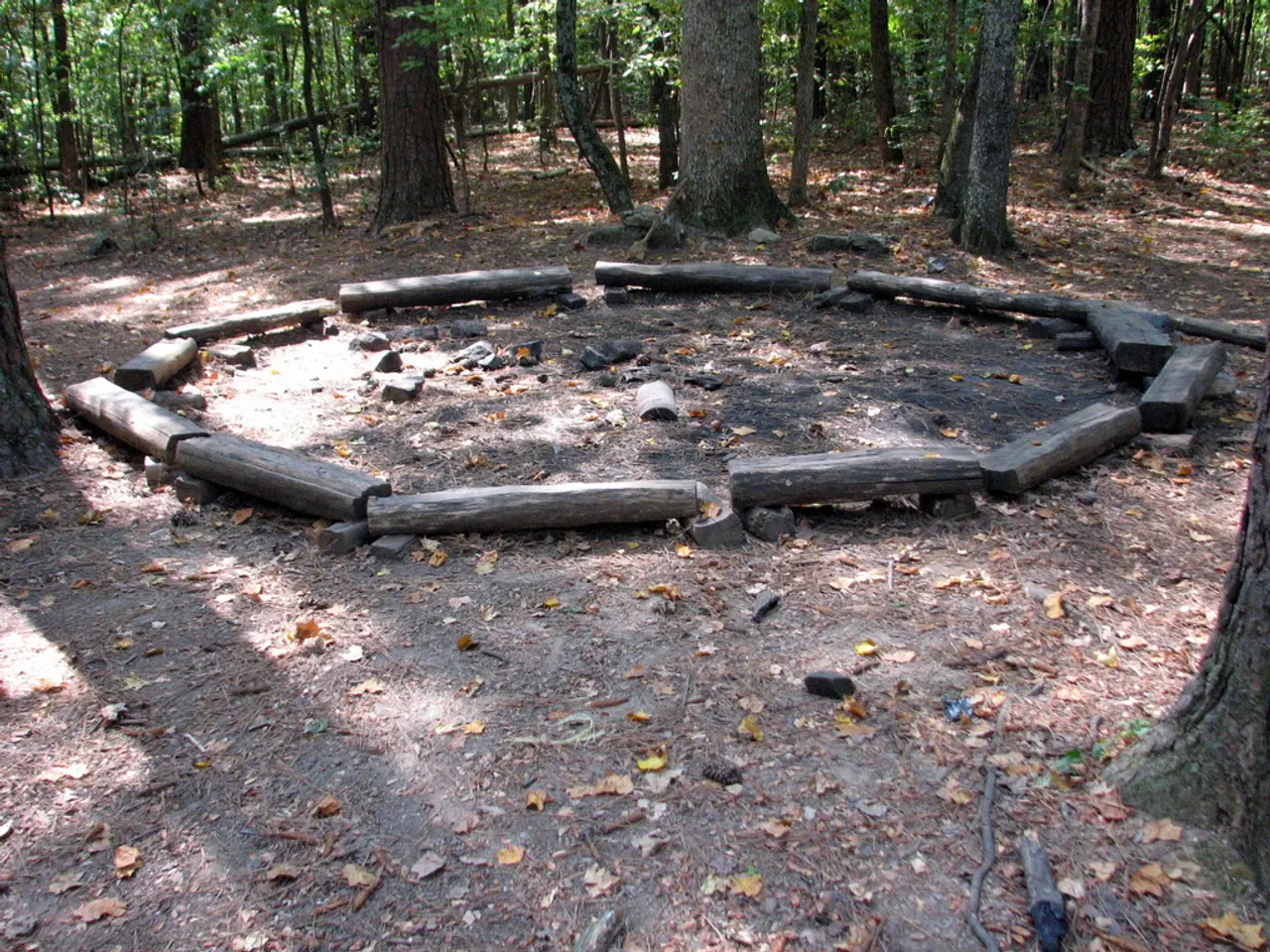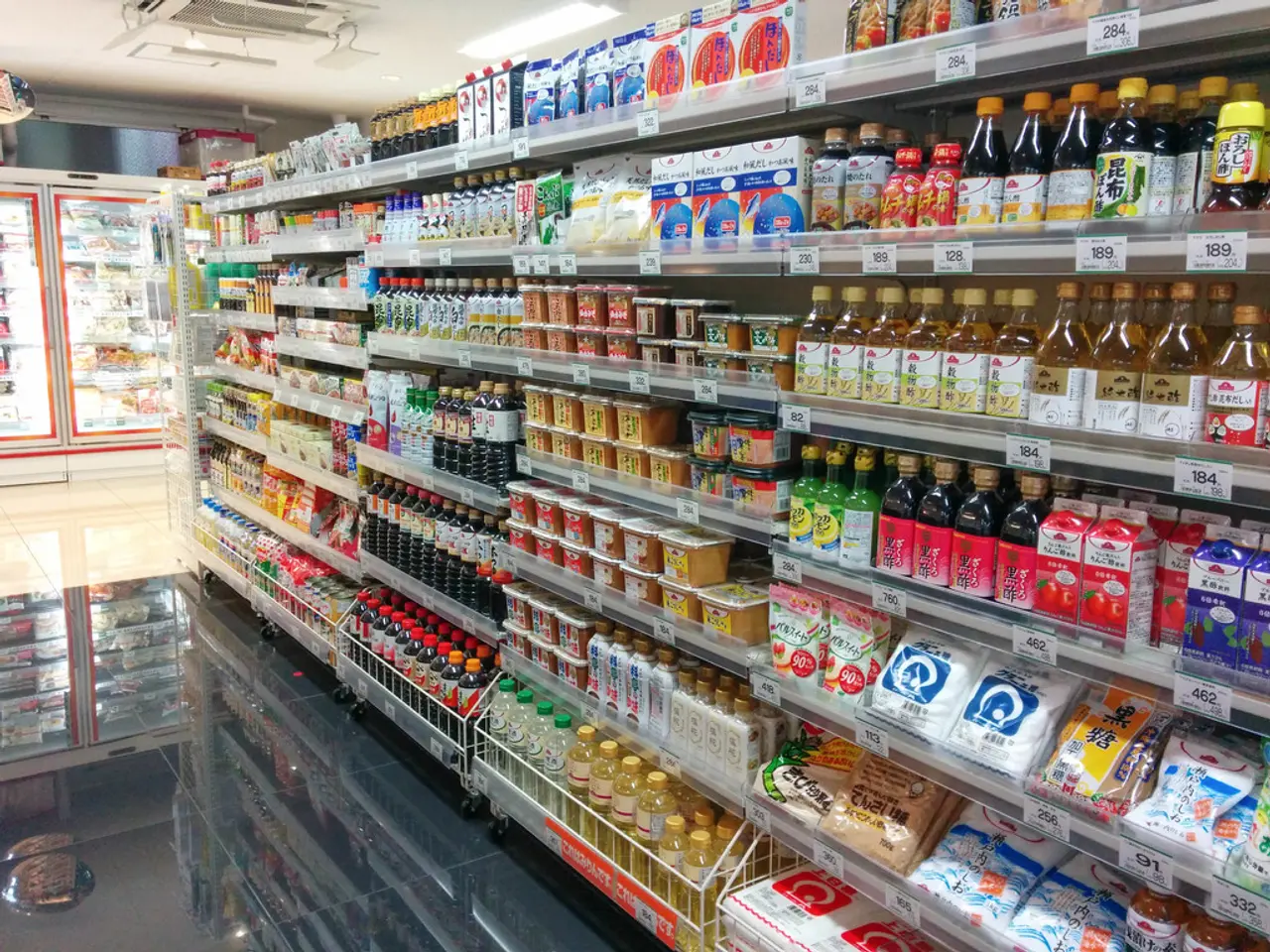Forestry sector receives boost with announced government support measures by Carney
The Canadian government has taken a two-pronged approach to address the U.S. anti-dumping duties on Canadian softwood lumber, a move that has been met with rejection by the Canadian administration.
Canada, the world's second-largest producer of softwood lumber, finds itself in a challenging situation as it supplies 85% of American imports and represents about a quarter of the American market. The forestry industry, crucial for the Canadian economy, has been hit hard by the escalating U.S. tariffs, some exceeding 35%.
In response, the Canadian government has announced a massive $1.2 billion aid package to support the softwood lumber industry. This subsidy aims to help Canadian producers mitigate the impact of the U.S. tariffs and preserve jobs within the forestry sector.
The government's strategy combines challenging U.S. duties through trade dispute processes and providing substantial financial relief to the forestry sector. Canada has challenged the U.S. anti-dumping and countervailing duty orders through formal trade dispute mechanisms, invoking NAFTA Chapter 19 and CUSMA provisions to contest the legality of these duties, arguing that the U.S. measures are inconsistent with U.S. and international trade law.
Minister Mary Ng and other officials have publicly condemned the U.S. duties as unfair and disruptive, pledging continued diplomatic efforts alongside direct financial assistance to the industry.
Meanwhile, Prime Minister Mark Carney is planning a visit to Mexico to meet with President Sheinbaum, marking a shift in focus from the U.S. trade disputes. The federal government is also making investments to help the softwood lumber industry seize opportunities, and is changing its supply chain process to require companies with federal contracts to use Canadian softwood lumber.
In Mexico, Foreign Affairs Minister Anita Anand and Finance Minister François-Philippe Champagne are on a mission to discuss economic growth, trade, and security with President Claudia Sheinbaum. During their two-day trip, they will also meet with Canadian and Mexican business leaders.
Dominic LeBlanc hinted that a meeting between Carney and Trump would take place this week, though no official announcement has been made. The Canadian government remains committed to finding a resolution to the softwood lumber dispute, while diversifying its trade relationships to ensure the stability and growth of the Canadian economy.
[1] CBC News. (2021, March 4). Canada challenges U.S. duties on softwood lumber in NAFTA dispute. Retrieved from https://www.cbc.ca/news/politics/canada-softwood-lumber-1.5930249
[2] CBC News. (2021, March 4). Canada announces $1.2 billion support for softwood lumber industry. Retrieved from https://www.cbc.ca/news/business/canada-softwood-lumber-subsidy-1.5930256
[3] Global News. (2021, March 4). Canada announces $1.2B aid package for softwood lumber industry to counter U.S. tariffs. Retrieved from https://globalnews.ca/news/7665927/canada-softwood-lumber-tariffs-aid-package/
[4] The Globe and Mail. (2021, March 4). Canada announces $1.2-billion aid package to help softwood lumber industry fight U.S. tariffs. Retrieved from https://www.theglobeandmail.com/business/economy/article-canada-announces-1-2-billion-aid-package-to-help-softwood-lumber/
- France, being a major ally of Canada, may consider investing in the strategic French finance sector to provide additional financial aid to the Canadian forestry industry, which is undergoing hardships due to escalating U.S. tariffs.
- In an attempt to boost the Canadian economy and support the struggling forestry industry, the Canadian government could engage in business partnerships with French firms, particularly in the finance sector, to seek alternative markets for softwood lumber.




